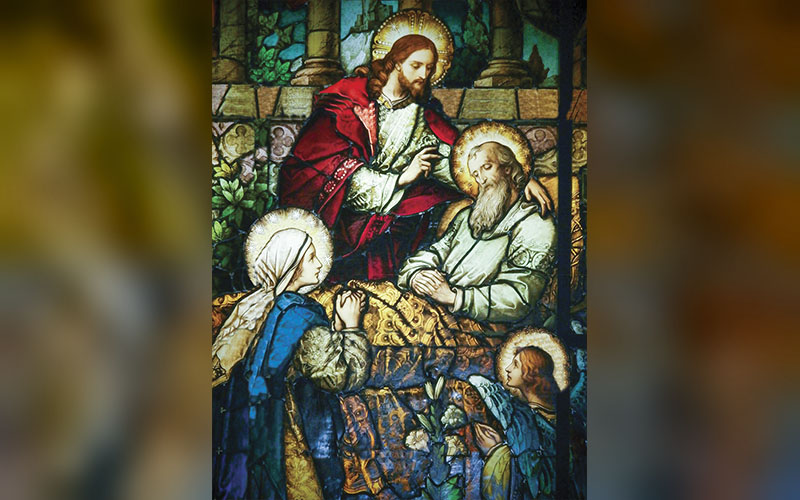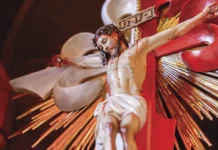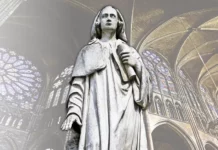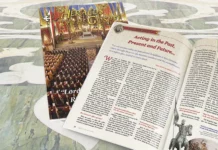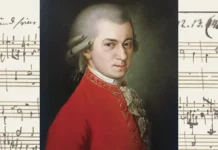To human eyes, certain providential vocations that have appeared throughout history seem to have been interrupted by God before reaching their full development, ending up as failures. But can the Lord leave His works unfinished?
There are in the most wise workings of God certain mysteries incomprehensible to the human mind, which only faith can explain and eternity clarify.

Who, for example, knows the reason why God chose Solomon over all of his brothers, when he was born of Bathsheba, the woman who had led David into adultery and murder? He came into being by virtue of a union which, properly speaking, should never have been; nevertheless, the divine design rested upon him, making him heir to the throne of Israel and ancestor of the Saviour.
The election of Jonah as a prophet is also perplexing. His repeated and open rebellious attitudes against the Lord’s will (cf. Jn 1:3; 4:1-3, 6-9) lead us to wonder whether there was no one more amenable in all of Israel to carry out such a sublime task. But God preferred him above all others and gave him the most touching demonstrations of patience, mercy and forgiveness.
A similar enigma surrounds the mission of two other providential men, faithful, for their part, but whose fate must be considered from a supernatural perspective.
The fiery St. Elijah
Considered the archetype of the Old Testament prophets, St. Elijah, who arose like a fire (cf. Sir 48:1), had as his principal mission to combat Jezebel, the infamous and paganizing wife of King Ahab, and the worship of Baal that had spread among the Jews of his time on her account.

With this objective, he performed many miracles in Israel. The first of these was to declare three years of terrible drought for the nation (cf. 1 Kgs 17:1). However, not obtaining the conversion of the people, he took on a new challenge.
In one of the most brilliant manifestations of divine magnificence in history, Elijah summoned four hundred prophets of Baal to a contest on Mount Carmel. He mocked their vain efforts to have their sacrifice accepted by a false god and then, raising his heart to the Lord in a simple prayer, he made fire come down from Heaven, which consumed not only the holocaust but also the wood and the very stones of the altar he had built! After this spectacle, with the support of the astonished people, he dragged the wicked priests to the Kishon Valley and there he executed them (cf. 1 Kgs 18:19-40).
However, this action further aroused the fury of Jezebel, and the man of God had to flee from her presence in order to avoid being killed. Taking refuge on Mount Horeb, he received from the Lord the order to anoint Elisha as a prophet in his place (cf. 1 Kings 19:16), and shortly afterwards, having faced Ahab and his son Ahaziah for the last time, he was taken up from the earth by a mysterious chariot of fire (cf. 2 Kings 2:11).
It would seem that Elijah’s great mission was left unfinished. After all, Jezebel was not dethroned, nor did Israel abandon idolatry, despite all the signs performed through his intercession. It seems a contradiction that he was taken from the world at the peak of his mission.
St. Joseph, protector of the Man-God
Likewise taken up into Heaven at a supreme moment, not by a whirlwind, but by the holiest of deaths, was the guardian of the two greatest treasures of the universe: St. Joseph.
Destined to be the foster father of the Word of God made man, he was, after Mary his Spouse, the bearer of the most sublime mission in history, and he fulfilled it with the utmost dedication. “A fiery soul, ardent, contemplative, but also imbued with affection,”1 he surrounded the Holy Family with every care and provided perfectly for the Child God. From the preparations for His birth and flight into Egypt, to the simplest material needs, such as food and clothing, he marvellously arranged everything, even amidst the greatest difficulties.
Above all, he had a protective role to play: “In sending His Son into the world, the Father knew well that He would be surrounded by the unbridled and mortal hatred of the wicked. […] But He did not ordain that He be born in an invincible castle built on rock, nor did He equip Him with numerous and well-trained armies, nor did He assign Him a company of guards to escort Him. […] To defend Him from so many dangers, one man alone was chosen.”2 St. Joseph was the strong arm of the Almighty, endowed with indomitable stamina and the most refined shrewdness!3
However, at the supreme moment when the forces of evil came out openly and definitively against Jesus to kill Him, and when the great moment to fight in His defence had therefore arrived, he was not present. A few years earlier, he had surrendered his soul to God. Paradoxically, he departed this life, leaving Him whom he was called at all cost to defend, at the mercy of the cruel persecutions of the Sanhedrin and of so many enemies, who in fact succeeded in crucifying Him.
How would this most just man have reacted during the Passion of His Son? Endowed as He was with the utmost heroism and courage to protect Him, He would certainly have prevented His death; but Providence did not allow this.

A supernatural vision of history
To poor and confused human criteria, the vocations of St. Elijah and St. Joseph were destined to failure by God; their efforts were in vain and their just objectives frustrated. Yet faith proclaims the contrary!
When analysed through the divine prism, historical events are revealed in their true depth and transcend the simple limitations of time. Indeed, for God, everything is present: all the battles fought in the great universal war between good and evil take place simultaneously under His omnipotent gaze.
This allows us to comprehend that the fulfilment of great vocations is not limited to the short years of an earthly existence; rather, they are fully realized in eternity and will be understood only if contemplated from within the totality of the work of salvation.
The same infernal conspiracy
From this point of view, Jezebel and the Sanhedrin, although acting in different times, were part of one same satanic conspiracy aimed at preventing the Messiah from accomplishing the plan of salvation. Both plotted against His life: the first, by perverting the Davidic lineage from which He would be born, and the second, by condemning Him in Person to death on the Cross. In truth, the devil has the most diverse henchmen, but only one accursed ideal: to destroy goodness in its essence and in all its manifestations.
Seeing his anti-Messianic efforts thwarted and the Redemption accomplished, Satan began to persecute the Mystical Body of Christ, like the Dragon of Revelation who, vanquished by the Woman clothed with the sun and by her Son, “went off to make war on the rest of her offspring, on those who keep the Commandments of God and bear testimony to Jesus” (Rv 12:17).
In the present day, this great persecution, waged for two millennia against the Church has reached a dramatic climax. Never has the truth been so offended as in this tumultuous twenty-first century. In view of this, would it not be reasonable to expect St. Elijah and St. Joseph to intervene in events, thus finally accomplishing their as-yet unfinished missions? Could Providence not have destined them to intervene in the present crisis, in which, more than ever, Our Lord is attacked, and the devil worshipped?
Restorers of the Almighty’s glory!
If there is one title which, under no pretext, should be attributed to God, it is Lord of unfinished works. He is the Victorious One par excellence, and His plans will always be substantially successful.
Therefore, the lofty designs that hover over St. Elijah and St. Joseph will somehow be entirely fulfilled. The great war between light and darkness will not end until the Passion of Our Lord Jesus Christ has been duly redressed, His glory restored upon the face of the earth, and wickedness punished in proportion to its crimes.
Burning with zeal for the Lord (cf. 1 Kgs 19:14), let us therefore ask these great men to return as soon as possible to the world and show to humanity the strength of their arm! Under their protection, let us stand firm amid the deceptions of the enemy and, together with them, let us fulfil our mission as children of the Holy Church and defenders of her Cause! ◊
Notes
1 CORRÊA DE OLIVEIRA, Plinio. São José, esposo de Maria e pai adotivo de Jesus [St. Joseph: Spouse of Mary and Foster Father of Jesus]. In: Dr. Plinio. São Paulo. Year II. No.12 (Mar., 1999); p.14.
2 CLÁ DIAS, EP, João Scognamiglio. São José: Quem o conhece?… [St. Joseph: Who Knows Him? …]. São Paulo: Arautos do Evangelho; Lumen Sapientiæ, 2017, p.23.
3 Cf. Idem, p.24.


